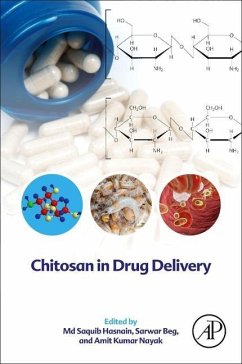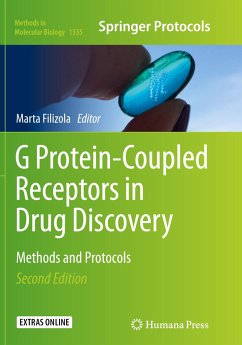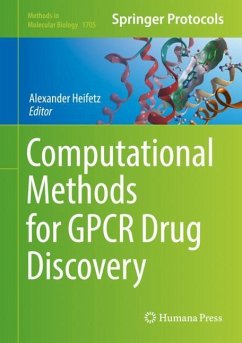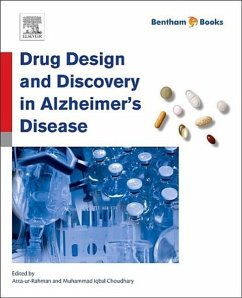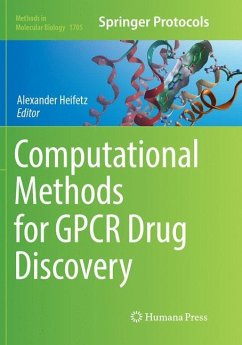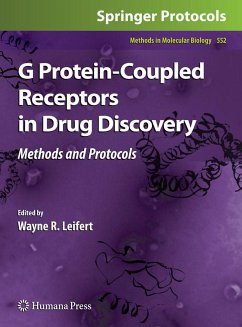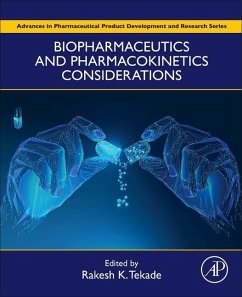
Allosteric Modulation of G Protein-Coupled Receptors

PAYBACK Punkte
50 °P sammeln!
Allosteric Modulation of G Protein-Coupled Receptors reviews fundamental information on G protein-coupled receptors (GPCRs) and allosteric modulation, presenting original research in the area and collectively providing a comprehensive description of key issues in GPCR allosteric modulation. The book provides background on core concepts of molecular pharmacology while also introducing the most important advances and studies in the area. It also discusses key methodologies. This is an essential book for researchers and advanced students engaged in pharmacology, toxicology and pharmaceutical scie...
Allosteric Modulation of G Protein-Coupled Receptors reviews fundamental information on G protein-coupled receptors (GPCRs) and allosteric modulation, presenting original research in the area and collectively providing a comprehensive description of key issues in GPCR allosteric modulation. The book provides background on core concepts of molecular pharmacology while also introducing the most important advances and studies in the area. It also discusses key methodologies. This is an essential book for researchers and advanced students engaged in pharmacology, toxicology and pharmaceutical sciences training and research.
Many of the GPCR-targeted drugs released in the past decade have specifically worked via allosteric mechanisms. Unlike direct orthosteric-acting compounds that occupy a similar receptor site to that of endogenous ligands, allosteric modulators alter GPCR-dependent signaling at a site apart from the endogenous ligand. Recent methodological and analytical advances have greatly improved our ability to understand the signaling mechanisms of GPCRs. We now know that allostery is a common regulatory mechanism for all GPCRs and not - as we once believed - unique to a few receptor subfamilies.
Many of the GPCR-targeted drugs released in the past decade have specifically worked via allosteric mechanisms. Unlike direct orthosteric-acting compounds that occupy a similar receptor site to that of endogenous ligands, allosteric modulators alter GPCR-dependent signaling at a site apart from the endogenous ligand. Recent methodological and analytical advances have greatly improved our ability to understand the signaling mechanisms of GPCRs. We now know that allostery is a common regulatory mechanism for all GPCRs and not - as we once believed - unique to a few receptor subfamilies.





